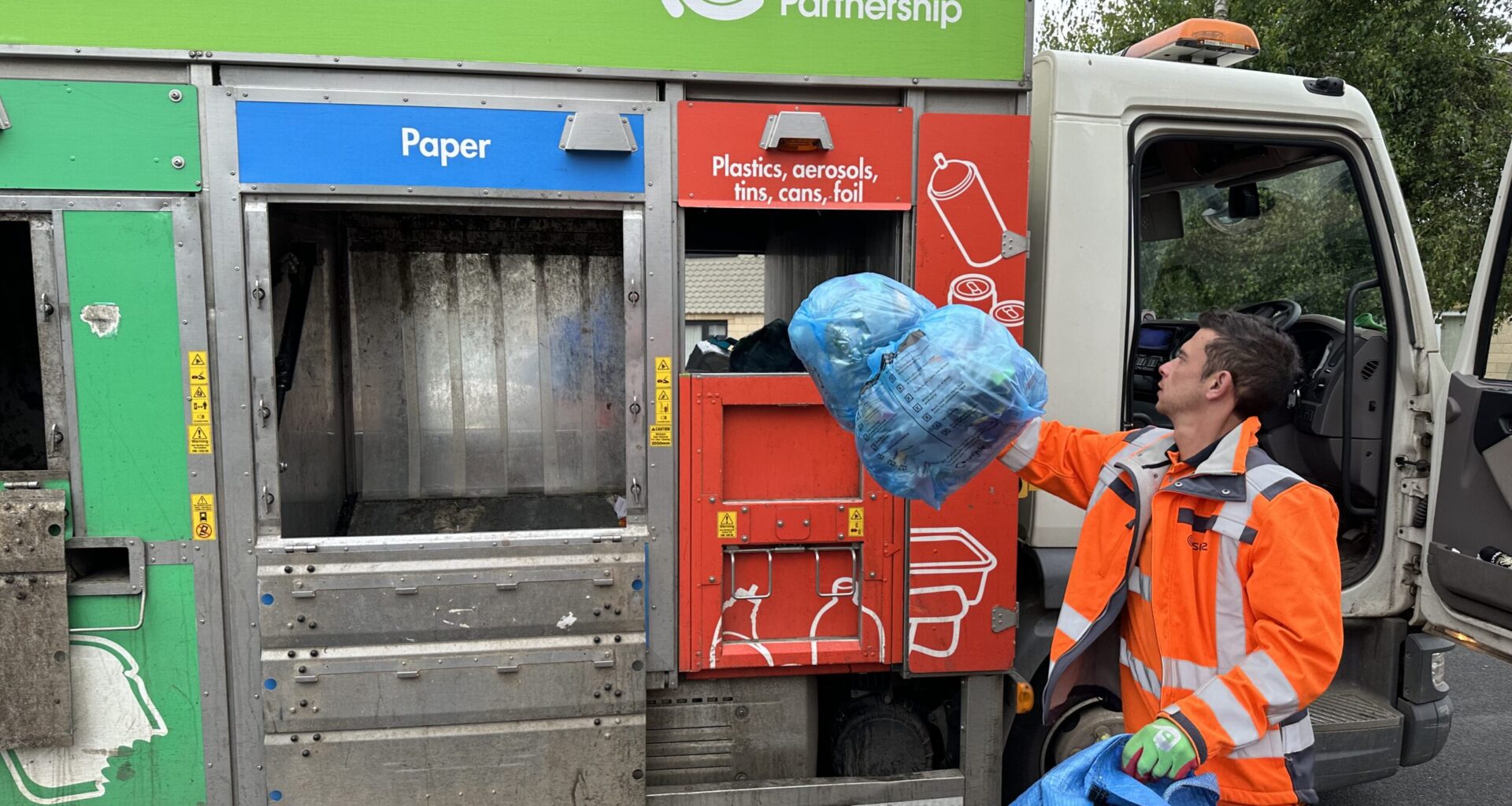The report consolidates over three years of learnings from the FPF FlexCollect trials and includes a blueprint for the future rollout of collections and recycling of flexible plastic packaging (FPP) such as crisp packets and bread bags.
The programme took place over three years across 10 pilot local authorities and 160,000 households and was the largest of its kind, collecting over 400 tonnes of FPP – the equivalent of over 50 million bread bags.
The project was managed by environmental consultancy Ecosurety in collaboration with Suez recycling and recovery UK, RECOUP and WRAP.
It comes ahead of the implementation of mandatory flexible plastic collections from 2027 as part of the Simpler Recycling.
Current data suggests that more than 150,000 tonnes of FPP could be collected annually once the legislation is in place.
Ecosurety said that local authorities and waste management companies can “confidently” use the data in the report and blueprint to plan and implement new collection services ahead of the changes.
Results of the trials
The FPF FlexCollect report concluded that FPP can be “effectively collected” across all service types with minimal to no disruption using dedicated bags or, in some instances, loose collection combined with other recyclable materials.
Nearly 90% of the collected material (including collection bags) was target material and was found to be “very clean” – which Ecosurety said demonstrated good sorting behaviour and low contamination.
The scheme proved popular with residents, with an 89% satisfaction rate among surveyed householders.
Recycling end markets saw recovery rates of around 80% when recycled to new flakes or pellets and up to 100% when recycled into plastic timber products.
Effect on local authorities
The report found that that the trial had a minimal impact on local authorities, including no impact on collection round times.
All participating Materials Recovery Facilities (MRFs) successfully accepted and processed the FPP, with little to no impact on their existing operations.
The report added that modifications, where necessary, were relatively straightforward to implement, such as the implementation of additional bays or new conveyors.
Ecosurety cautioned that local authorities which opt for loose collections may see the need for greater investment.
Collection costs ranged between £1.96 to £3.14 per household annually, whilst sorting costs ranged between £0.17 and £0.64 per household annually. The cost is predicted to decrease in the second year of service.
Infrastructure capacity deficit
The report identified that there is currently insufficient recycling capacity for the future demand from 2027.
However, 100,000 tonnes of planned or in development facilities, combined with potential spare capacity in European facilities, will reportedly meet a significant amount of the demand.
The blueprint provides a clear signal to accelerate investment in UK-based reprocessing capacity and develop robust end markets for recycled flexible plastic packaging.
The FPF said that it intends to continue its work on FPP by undertaking in-depth research into the recycling of this material to support the transition to a truly circular system, where FPP is turned back into high-value products.
Gareth Morton, FPF representative and Discovery Manager at Ecosurety, said: “FlexCollect has shown that collecting plastic bags and wrapping from people’s homes is not only possible – it’s popular, efficient, and scalable.
“This report is the culmination of years of hard work by the FPF project partners, and a critical step towards a circular economic system for flexible plastic packaging in the UK.
“But we’re not done yet, the FPF is planning its next major project, which will look at the necessary conditions required for industry to recycle this material at scale.”
Launch event
The report will be formally launched today (1 September 2025) at the Houses of Parliament at an event sponsored by Amanda Hack MP and attended by Mary Creagh CBE MP, Parliamentary Under-Secretary of State at Defra.
The team behind the project will also be running a series of webinars to unpack the key findings of the FPF FlexCollect project:
LARAC members – 23 September 2025, 10am – 11:30am TBC
INCPEN members – 24 September 2025, 10am – 12pm
WRAP members – 29 September 2025, 10am – 11:30am
CIWM members – 30 September 2025, 12:30pm – 2pm
The FlexCollect project is funded by FPF members Mars UK, Mondelēz International, Nestlé, PepsiCo, Unilever, Abel & Cole, Eat Real, Ella’s Kitchen, Kiddylicious, Koninklijke Douwe Egberts, KP Snacks, Lotus Bakeries, McCain Foods, Natural Balance Foods, Ocado Retail, pladis, Proper Snacks, The Collective, and Vitaflo, as well as by Defra, UK Research & Innovation’s Smart Sustainable Plastic Packaging Challenge delivered by Innovate UK, Ecosurety, RECOUP, WRAP and Zero Waste Scotland.
The FlexCollect project and its findings will also be featured at our upcoming Collections Conference (20th November), as part of the session on waste streams and collection innovation – register your interest here and be the first to know when tickets become available.
\\r\\n\\r\\n\\r\\n\\r\\n\\r\\n\\r\\n\\r\\n\\r\\n\\r\\n\\r\\n\\r\\n\\r\\n\\r\\n\”,\”body\”:\”\\r\\n\\r\\n\”,\”footer\”:\”\”},\”strict\”:{\”header\”:\”\”,\”body\”:\”\”,\”footer\”:\”\”},\”advanced\”:{\”header\”:\”\”,\”body\”:\”\”,\”footer\”:\”\”},\”performance\”:{\”header\”:\”\”,\”body\”:\”\”,\”footer\”:\”\”},\”preference\”:{\”header\”:\”\”,\”body\”:\”\”,\”footer\”:\”\”}}”,”gdpr_scor”:”true”,”wp_lang”:””,”wp_consent_api”:”false”,”gdpr_nonce”:”6cede86b21″,”gdpr_consent_version”:”1″,”gdpr_uvid”:”b80210ffe1c46a4c6efc029baa628b3e”,”stats_enabled”:””,”gdpr_aos_hide”:”false”,”consent_log_enabled”:””,”enable_on_scroll”:”false”};
/* ]]> */



